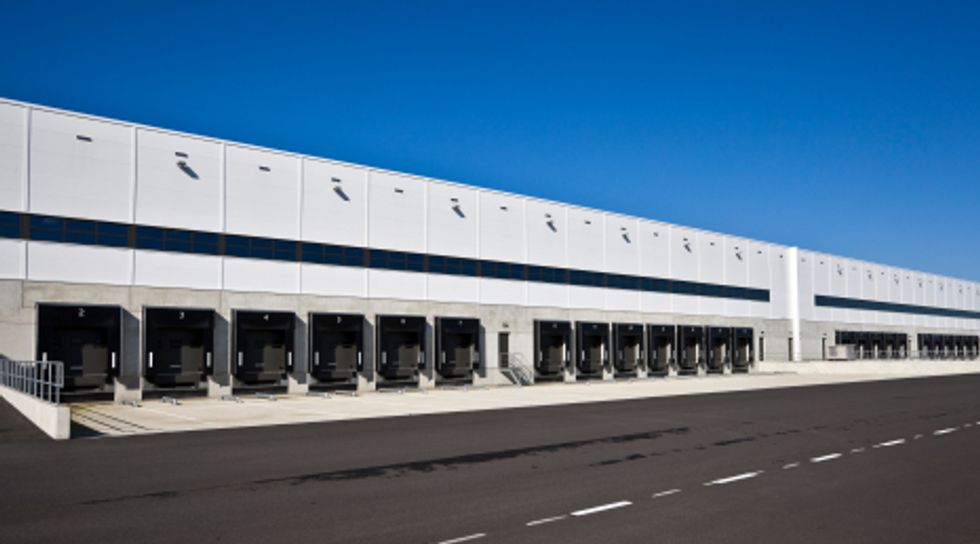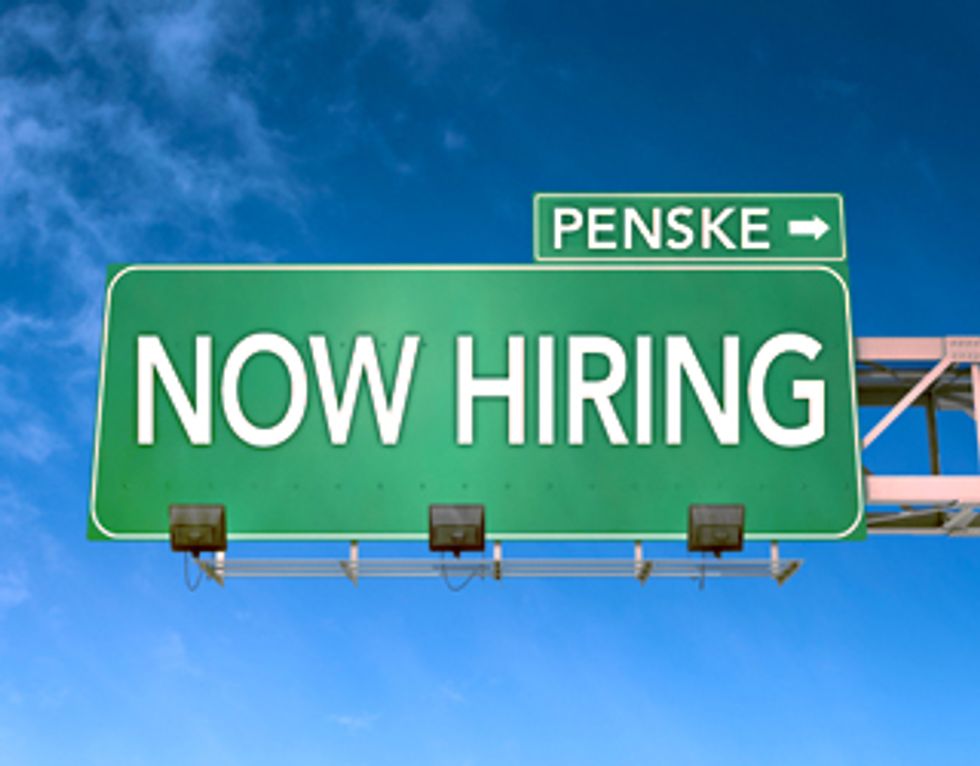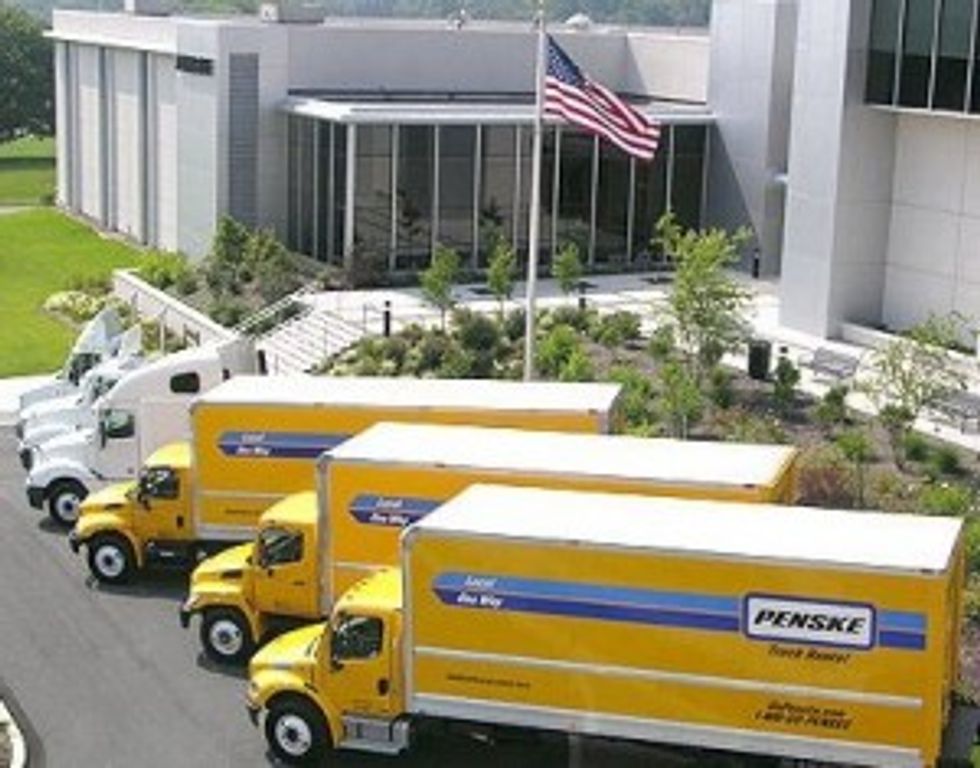The survey is sponsored by Penske Logistics.
As we'll explore below, there are a number of reasons why talent recruitment and retention has become such a widespread problem for 3PLs.
If third-party providers are to maintain their value proposition—that their knowledge and experience are the source of the improvements they wring from a customer's supply chain—then the need to solve the talent problem is not only urgent but perhaps a matter of survival.
To assure a bright future, 3PLs must be competitive across multiple dimensions when it comes to hiring, and they must try to understand what new employees are looking for in an employer.
A multifaceted problem
Our annual surveys have addressed the issue of talent recruitment and retention many times throughout the years, and we have gathered substantial data on the topic. We continued to do so in our 2013 surveys.
First, we asked the CEOs of 25 large, multinational 3PLs why, in their experience, this continues to be such a significant problem in the industry. They identified a number of possible reasons, which can be clustered into several areas.
First, large 3PLs find themselves competing for supply chain and logistics management talent with manufacturers, retailers, other 3PLs, consulting firms, and other service-sector organizations. It's a very competitive market and the talent pool, particularly at the entry level, is not sufficient to meet the industry's needs. There is much greater demand than supply, particularly in emerging markets.
Second, according to the CEOs the initial opportunities for supply chain and logistics management professionals in other industries are often perceived to be more attractive than those in the 3PL industry. Several observed that 3PL company brands are generally not well known to the general public.
Third, many managers leave large 3PLs for what are seen as better opportunities in other industries, leading to a high management attrition rate.
Fourth, and potentially most important, the 3PL industry has been slow to adapt to the changing and evolving needs and expectations of a younger work force.
Among the other interesting observations made by the CEOs were that other industries pay more for top intellectual talent than 3PLs, and that there is constant pressure on 3PL employees to demonstrate value and deliver high-quality services to clients at competitive prices.
That pressure can create a very stressful environment and a heavy workload for 3PL managers. Compounding this situation is the fact that a significant number of the industry's clients are very difficult to work with.
The CEOs also noted that many 3PL managers come up through the ranks, and as a result may not have the skills required for managing effectively at higher corporate levels.
They also expressed concerns that, in some instances, large 3PLs have inadequate human resource management support, and that recession-related layoffs have not only undermined the industry's ability to build its management strength, but have also led many talented managers to leave the industry altogether.
3PLs rank themselves as employers
This year's surveys asked the CEOs to rank the 3PL industry in terms of its treatment of young managers with respect to salary, benefits, career opportunities, travel and workload. The results may provide some insight into why finding and keeping talented managers continues to be a significant problem in the industry. A five-point rating scale was used, and on each dimension the respondents were given the options of "excellent," "very good," "good," "fair," and "poor." It should be noted that not every respondent ranked the industry on every dimension.
On the five-point scale, the respondents' average ranking of industry salaries was 2.84. Only two CEOs ranked the industry above "good" in terms of salary, and five ranked it "fair" or "poor." The average ranking of benefits was only slightly higher at 2.95. Only one respondent ranked it above "good," with five ranking the industry's benefits as "fair" or "poor."
This suggests that the 3PL industry needs to determine how it compares with the salaries and benefits offered by its competitors in manufacturing, retailing, transportation and consulting. That's important not only at the entry level, but also as individuals move up through management ranks.
With respect to career opportunities, the average ranking was 2.53, with nearly half of the respondents describing it as "fair" or "poor" on that dimension. That is a major red flag. Certainly managers must have a clear idea of how their careers will unfold if they stay with their employers.
They also need to know specifically how they are being evaluated, who is doing the evaluation, and what the rewards are for outstanding work. Above all, there must be opportunities for career development.
Travel requirements generated an average ranking of 2.52, with more than half of the respondents ranking it "fair." Accordingly, third parties need to examine how much time managers are on the road. At the beginning of one's career the concept of travel is exciting and interesting. As time goes on it becomes much less so. How much travel is too much? Clearly "face time" is important in building client relationships, but there are trade-offs to be considered, such as whether communications technology could be used as a substitute for travel.
Finally, in terms of workload the CEO rankings averaged 2.33, with 16 of 24 CEOs ranking the industry as "fair" to "poor" in that regard. Again, this should be major concern for the industry as it assesses its ability to hire and retain management talent.
When it comes to workload, the 3PLs are, to a certain extent, reminiscent of the trucking and warehousing entities that formed the basis for much of the logistics industry.
It's quite common to hear that potential employees are often told that initial workload expectations are likely to be in the range of 50 to 70 hours per week, and that they are likely to be on call 24/7.
When I hear this, I am always reminded of UPS' early involvement in global commerce. As the company attempted to recruit new employees in Germany it stressed that workers were likely to be offered unlimited overtime. The typical response from the German workers: "Why would anyone want that?" The company also heard, "If you have that much overtime, you probably haven't hired enough employees."
That was correct then, and it is still correct today. As people's lives become more complicated they often seek a greater balance between work and the rest of their lives. Many of the people entering the work force today are therefore seeking more balance in their lives than some companies are willing to offer, and that can cause chronic hiring and retention problems for such companies.
 Other concerns worry employees
Other concerns worry employees
In addition to the findings about the job dimensions just mentioned, our research and conversations with executives and others in the third-party logistics industry have brought a number of other human resources concerns to light. They include:
Job security. Naturally, job security is an important issue to any employee, and it certainly comes into play in the 3PL industry. Many large 3PLs have worked very hard to build their management base, but in some instances those efforts have been undermined by the recessionary pressures of the past decade. Those pressures have often led to large-scale management layoffs that have hit relatively new hires the hardest.
While such cost-cutting efforts have reduced short-term losses, they can also be devastating in the long term. Laid-off employees are often bitter, and those who remain are looking over their shoulders for the next wave of layoffs. In addition, companies incur the costs of severing employees, recruiting new employees when business rebounds, and hiring and training those employees, while also incurring the hard-to-estimate costs of lower employee morale.
These costs are substantial, and they must be weighed against the costs of minimizing layoffs during downturns. Obviously, this is a complicated issue that for public companies involves many players, including board members and the financial community. But the existing pattern of work force expansion, contraction, and expansion raises real questions in the minds of many potential managers about the stability of the industry.
Management style. Newer employees of large 3PLs often encounter management styles that are rather "old school" in nature. Communication is often seen as one-directional, and this leads employees to feel they have no effective way to communicate their ideas upward within the organization.
Continued globalization of the industry. Most large 3PLs now have global operations that have typically been created through acquisitions. In many cases, the integration of those foreign business entities into the acquiring company has been quite difficult because of differences in corporate culture, management styles, information systems and methods of communication. This is often very stressful for all parties involved.
Meanwhile, many of these companies have found that the depth of available management talent is quite limited, particularly in emerging economies. This can make it difficult for them to provide the level of service desired by their key clients, which again puts added stress on the rest of the management team.
Training. Any company should not only prepare its new employees for their initial jobs within the organization, but it should also help them develop their skills over time. In the 3PL industry that support should not be limited to providing initial training about such areas as the company and its place in the industry, individual job responsibilities and an understanding of new hires' future roles within the company. Third-party logistics companies should also provide new employees with detailed information about the industry they are about to enter. In addition, 3PLs need to make a commitment to ongoing training that will help employees develop the ever-expanding skill set required to meet both the current and the future needs of the company.
I'd like to make two further points with respect to training. First, many companies reduce their commitment to training during hard financial times. That is a mistake. This strategy saves money but stifles individual growth. Second, many companies use internal "professional" trainers to deliver content.
That is another mistake. Such individuals often train across a broad range of topics and are not expert in any of them. This is not a place to go cheap. Either bring experts in, or send the employees to outside programs that will provide the educational experience necessary for them to thrive in the industry.
Turnover at the top. Another factor that may contribute to the industry's chronic problem of finding and keeping talented managers is that many large 3PLs have seen considerable turnover at the top of the company. That was clearly evidenced in the responses to one of our annual surveys, when we found that the CEOs who participated had been in their jobs an average of just 3.5 years at the time the surveys were conducted.
The issue of turnover at the top is intensifying as the industry continues to consolidate and grow through acquisitions. Such change introduces a significant degree of flux into those organizations, and it often leads to dramatic changes in company strategies and operations. That can be disconcerting to managers who are often uncertain as to what the change in leadership will mean for them and for their careers.
Poaching management talent. One final market reality is that there is substantial poaching of management talent within the 3PL industry. In this year's surveys, the large 3PLs reported that, on average, 45 percent of their new hires come from other 3PLs. In some cases that figure was closer to two-thirds. Much could be written about the possible reasons for this, but that is beyond the scope of this article.
What are 3PLs doing about talent?
In this year's surveys the CEOs were also asked if their companies had instituted a variety of human resource management (HRM) programs aimed at finding and keeping talented managers.
As shown, the majority of the companies that participated in the survey have active university recruiting programs, formal training programs for new employees and mentoring programs. But less than half of them offer job-rotation programs for new employees, and relatively few offer profit-sharing and employee stock-ownership programs.
Among the other related steps taken by some large 3PLs during the past several years were:
- Expansion of internal recruiting efforts
- Use of outside firms to assist with recruiting
- Identification of "fast track" managers who are given expanded training
- Introduction of new coaching, training and mentoring programs
- Development of succession programs across regions
- Institution of companywide programs emphasizing best practices, "stay" interviews, and regular employee roundtables.
 What else could 3PLs do?
What else could 3PLs do?
During the past 25 years I have literally talked to thousands of people who are employed in the global 3PL industry, from board chairmen to warehouse workers. Based upon that interaction and my additional exposure to the industry, I believe there are some steps that the industry as well as individual companies might take to attempt to improve 3PLs' ability to find and keep talented managers.
I'd like to suggest that 3PLs form an industry task force to examine these matters and provide research funding to explore issues affecting the industry. That might be coupled with an industry-sponsored conference that would specifically address these issues.
The industry should also participate more extensively in on-campus recruiting and job fairs, and consider providing scholarships to universities with supply chain management programs. That might be coupled with establishment of a 3PL industry speakers bureau. Collectively, these steps would increase the visibility of the industry and provide greater access to students with a background in the field.
There would also be value in establishment of an online industry marketplace for job postings and resumes that would be sponsored by and used exclusively by 3PLs. The Internet could also be used to create an online forum where 3PL employees could discuss human resource management issues. Finally, I'd like to suggest that executives learn from the experience of other industries that have been dealing with similar issues. There is often a reluctance to do that, which goes back to the roots of many of these companies in the transportation and warehousing industries.
Those are ideas that will take some effort by the industry as a whole. But there are several things large 3PLs can and should do individually, right now. They should conduct a thorough job analysis of positions within their companies and use objective standards to compare the adequacy of not only their job designs and requirements, but also of their compensation and benefits packages.
They should also conduct annual employee surveys to "take the temperature" of their organizations. Managers should be rotated out of "problem" client assignments with regularity; better yet, over time that type of client should be eliminated from the client base.
Often, the problems such clients cause more than offset the monetary value they deliver to their service providers.
Consistent with that point, 3PLs should continue to seek more collaborative working relationships with their key clients. Many are doing so, and that is a very important development.
Finally, 3PLs should develop an exit interview "data bank" with information from managers and operating personnel who leave their organizations. Analysis of that data could provide valuable insights into the reasons talented people leave, and what might be done within the company to address those issues.
Final thoughts
The emergence and evolution of the third-party logistics industry has been one of the most interesting and important developments in the history of supply chain management. Its scope has become global in nature, and its existence provides very important strategic opportunities for existing and potential clients. The 3PL industry's future appears to be bright, but it will be very dependent upon the industry's ability to find and keep talented managers. The marketplace for talent in the field of supply chain and logistics management is very competitive, and data generated through our annual surveys of 3PL CEOs clearly indicate that top-level executives are aware of areas in which their companies might currently suffer a competitive disadvantage.
There are real challenges involved in attempting to improve the industry's talent base, but those challenges can be overcome through thoughtful attention from management and decisive action to make the industry an attractive place for young professionals to work and grow.
By Dr. Robert Lieb
Dr. Lieb is author of the 20th Annual Survey of Third-Party Logistics Provider CEOs which is sponsored by Penske Logistics. He is professor of supply chain management at Northeastern University's D'Amore-McKim School of Business. The report was co-authored with Dr. Kristin Lieb, associate professor of marketing communications at Emerson College.









 Third-party logistics companies worldwide say recruiting and retaining managers is one of their biggest challenges. Here are some steps providers can to take to remedy this growing concern. I have been conducting research into the third-party logistics (3PL) industry for nearly 25 years. For the last 20 years I have done three annual regional surveys of the chief executive officers (CEOs) of many of the largest 3PLs in North America, Europe and the Asia-Pacific region.
Third-party logistics companies worldwide say recruiting and retaining managers is one of their biggest challenges. Here are some steps providers can to take to remedy this growing concern. I have been conducting research into the third-party logistics (3PL) industry for nearly 25 years. For the last 20 years I have done three annual regional surveys of the chief executive officers (CEOs) of many of the largest 3PLs in North America, Europe and the Asia-Pacific region. Other concerns worry employees
Other concerns worry employees What else could 3PLs do?
What else could 3PLs do?




 While Penske spends millions on training each year for the company’s 18,300 global associates, and has a long history of promoting educational and developmental opportunities to their associates, this is the first time they have partnered with a university to bring classes directly to their associates.
While Penske spends millions on training each year for the company’s 18,300 global associates, and has a long history of promoting educational and developmental opportunities to their associates, this is the first time they have partnered with a university to bring classes directly to their associates.

